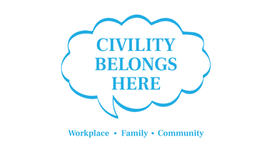- Jul 15, 2016
- 3 min read

How resilient are you? How resilient are the people you need to engage, influence and encourage every day?
Resilience is the ability to become stronger, healthier and more successful as a result of an adversity or failure. No one gets through life without failing or experiencing some kind of hardship. The only question is…how can you use the setback to get stronger and keep going forward?
Several years ago, I had the opportunity to work with Karen Reivich, author of “The Resilience Factor…7 Essential Skills for Overcoming Life’s Inevitable Obstacles.” She suggests that most adults and children are not emotionally and psychologically prepared to handle adversity. As a result, instead of being courageous, confident and competent when facing problems, too many individuals give up and feel helpless. Her research also discovered some people can demonstrate resilience in one area of their life but not another.
If you are ready to develop more resilience and help your co-workers, clients, family and friends do the same, the first step is Emotion Regulation. The ability to control your emotions, attention and behavior is required to develop resilience. Leaders and team members who struggle with regulating their emotions are very difficult to work and/or live with. It’s also very challenging for others to build a better relationship or improve results with someone who is angry or anxious much of the time. People fall into the fight or flight mode of interacting with individuals who have a hard time controlling their emotions.
Please print out the first part of her Resilience Test (Emotion Regulation) and rate each item for how true it is of you, using the following scale.
1 = not at all true 2 = sometimes or somewhat true 3 = moderately true 4 = usually true 5 = very true of me
Emotion Regulation
____ I can control the way I feel when adversity strikes.
____ I am good at identifying what I am thinking and how it affects my mood.
____ If someone does something that upsets me, I am able to wait until an appropriate time when I have calmed down to discuss it.
____ When I discuss a “hot” topic with a colleague or family member, I am able to keep my emotions in check.
____ Even if I plan ahead for a discussion with my boss, co-worker, my spouse, or my child, I still find myself acting emotionally.
____ I am unable to harness positive emotions to help me focus on a task.
____ I get carried away by my feelings.
____ My emotions affect my ability to focus on what I need to get done at home, school or work.

If you scored low on Emotion Regulation, the solution is simple to understand and difficult to put into action, especially when you or someone else is emotional. However, to improve in this area, take a deep breath when you notice you’re having some critical thoughts about yourself or someone else and let the negativity go. During that moment of silence, ask yourself…how can I create a positive interpretation about the person or event that I feel is the source of the problem? Remember, you can’t create positive results with negative thoughts. In reality, most of the time we’re reacting to the negative story we’re telling ourselves. Our version of the truth isn’t always helpful. The next time you’re upset, change the story you’re telling yourself and your relationships and results will improve.
Over the next few weeks, we will be reviewing the lessons learned from her work. I also recommend you order her book for a more in-depth understanding of how to build resilience.
Keep Going…in a positive direction. You can do this!
Let’s Get Better. Together! Bill Durkin
































Comments